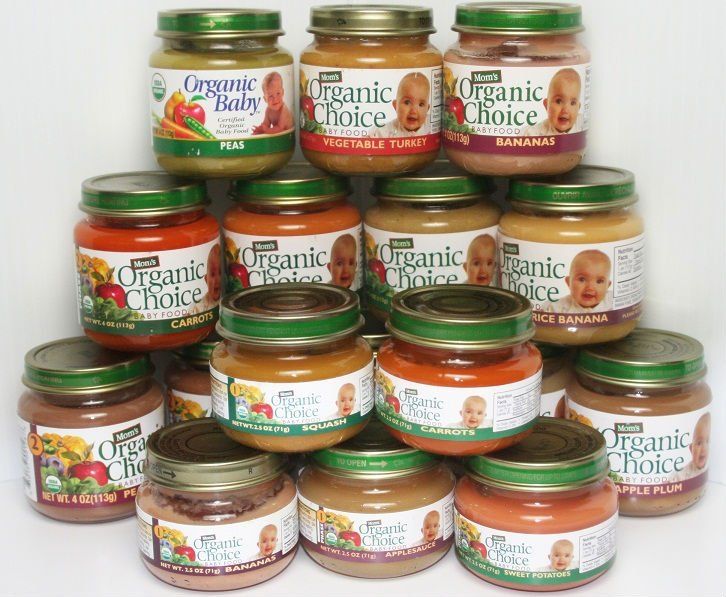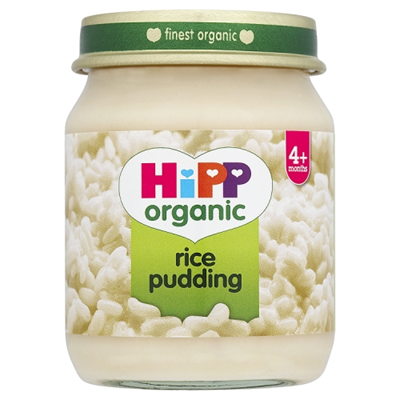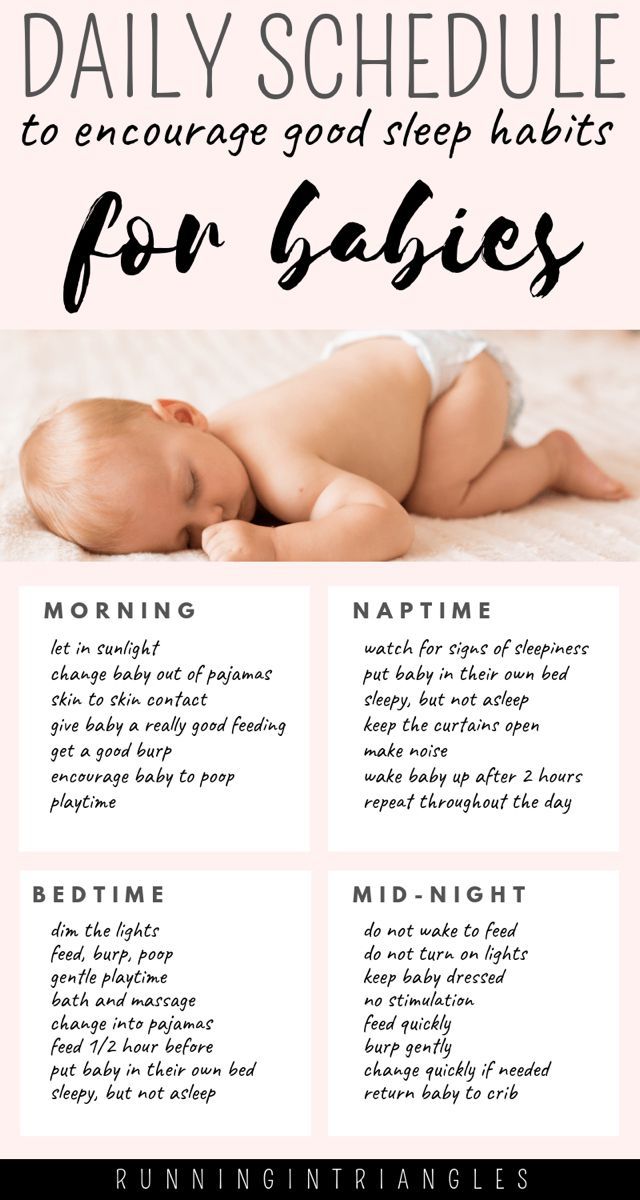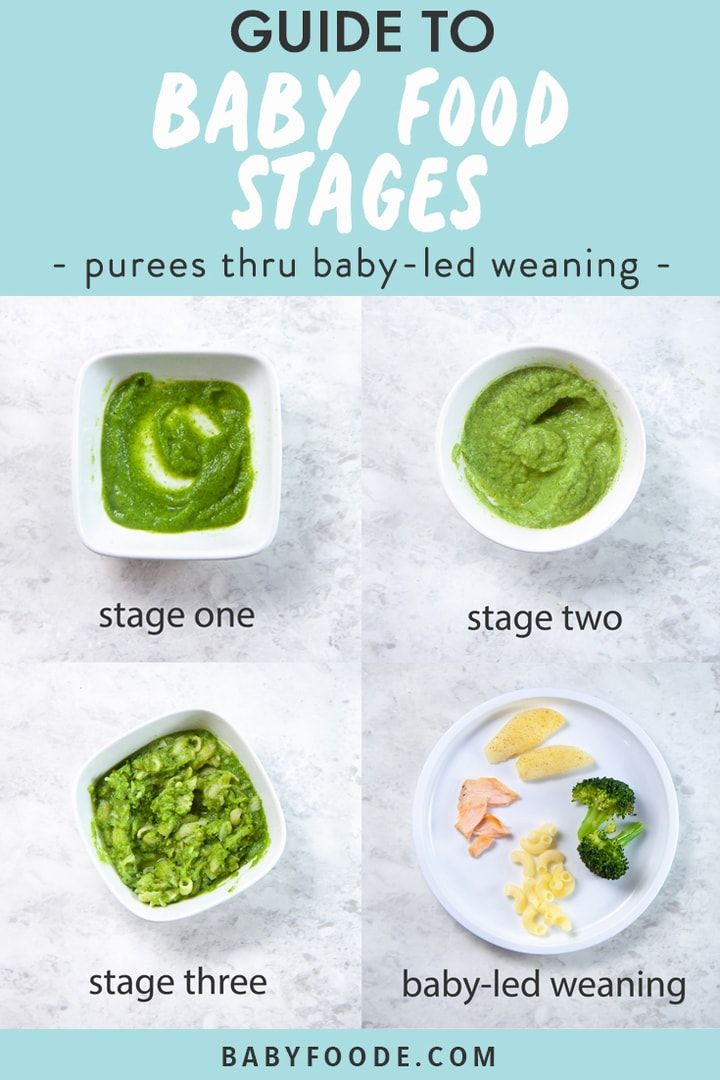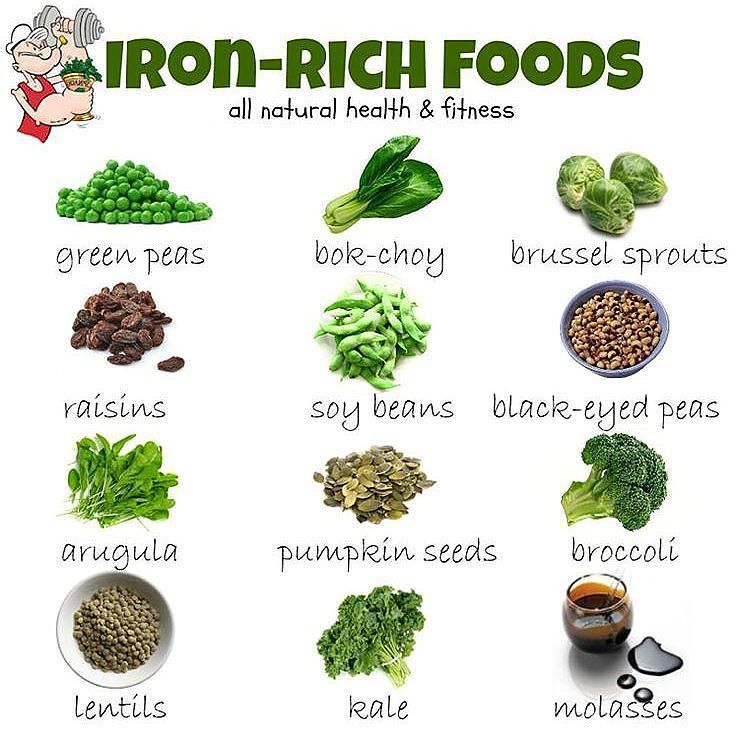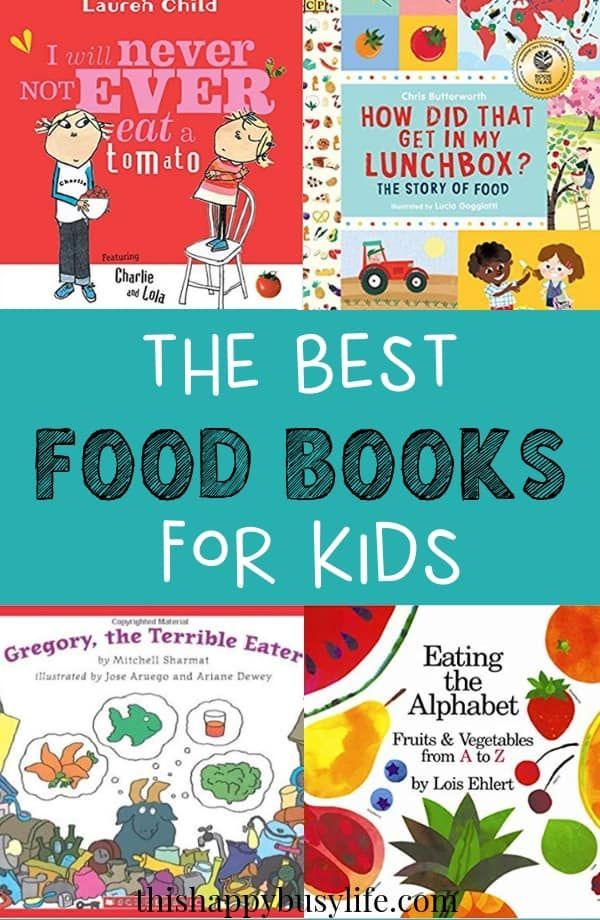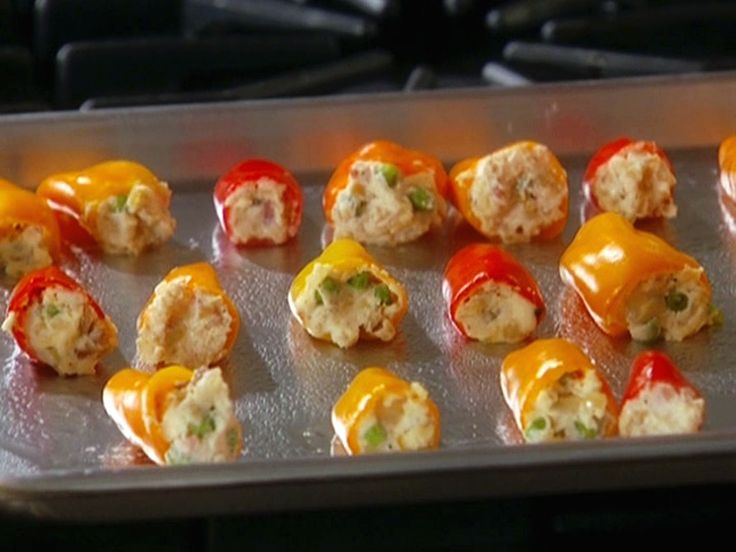Baby food rice recall
Report: Arsenic in 9 Brands of Infant Cereal
Image
Image
Our study found 6 times more arsenic in infant rice cereal than in other infant cereals.
What it means for babies’ health: Arsenic causes cancer and permanently reduces children’s learning ability. Rice cereal is babies’ top source of arsenic exposure.
Why rice cereal contains arsenic: Rice readily absorbs arsenic from the environment, about 10 times more of it than other grains. A new study found arsenic in all brands of infant rice cereal tested, and lower levels in all brands of non-rice and multi-grain cereals.
What parents can do: Parents who include infant rice cereal in their baby’s diet can immediately lower their child’s arsenic exposures simply by switching to oatmeal, multi-grain, and other non-rice cereals.
Read the Report
What Parents Can Do
There are easy steps that parents can take to limit their babies' exposures. Our parent resource has 8 simple tips to protect your family from arsenic in rice and other foods.
Download the Tip Sheets
Findings & Resources
It’s no secret that infants eat traces of arsenic with every bite of rice cereal. Widespread reporting on the problem began five years ago, when tests by Consumer Reports found arsenic in rice and rice-based foods, including infant rice cereal.
Rice readily absorbs arsenic from the environment, about 10 times more of it than other grains. Rice cereal is babies’ top source of arsenic exposure.
Widespread concern and public pressure – combined with growing science on arsenic’s toxicity at low doses – should have spurred the U.S. Food and Drug Administration (FDA) and the cereal industry to take high-arsenic cereals off store shelves. It hasn’t happened. Arsenic is strictly regulated in drinking water, but is legal in any amount in infant rice cereal. It is a potent human carcinogen and a neurotoxin shown to permanently reduce children’s IQ.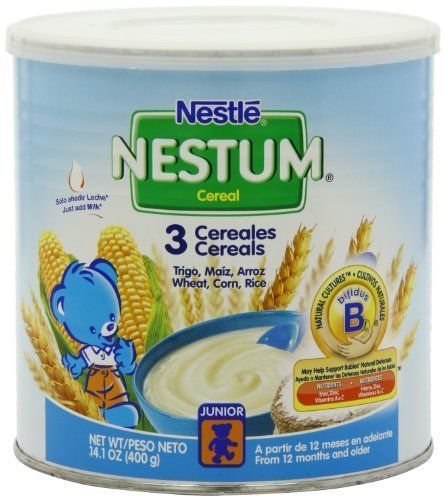
In first-ever tests of new, non-rice infant cereals, Healthy Babies Bright Futures and our partner organizations report that average arsenic levels in infant rice cereals are six times higher than in other infant cereals.
- We tested over 100 cereals made from a wide range of grains (including rice) from many well-known brands, including Gerber, Earth’s Best, Beech-Nut, Nestlé, and five others. Comprehensive lists and data are in the report.
- Our tests show 84% less arsenic in non-rice and multi-grain cereals than in infant rice cereal, on average. All but one of the 42 containers of infant rice cereal we tested had more arsenic than any of the 63 other cereals included in our study.
- FDA has failed to finalize its 2016 proposed limit for arsenic in infant cereal. Our results suggest that cereal makers have already taken steps to limit arsenic. We found 85 ppb of arsenic, on average, in rice cereals tested in 2016 and 2017, versus the 103 ppb average level FDA found in 2013 and 2014.
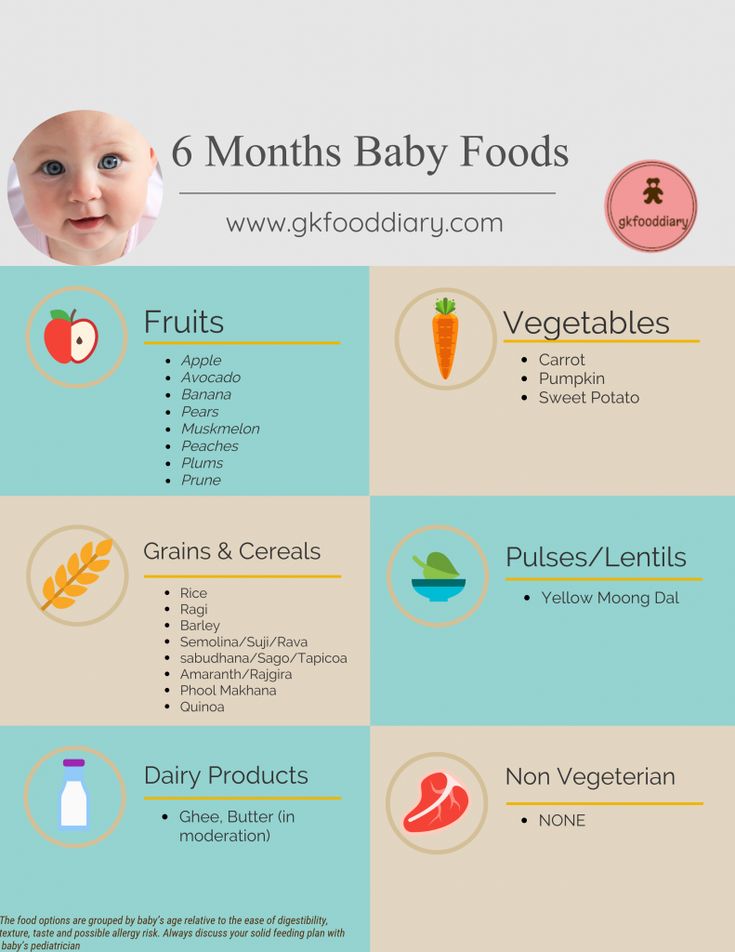 This decrease is NOT enough to protect infants.
This decrease is NOT enough to protect infants. - Our tests are from a nationally accredited laboratory and have been released with the support of doctors, experts, and other organizations.
Image
Our study also uncovered some good news and actionable items for cereal companies, the FDA and parents.
-
Our research bolsters a body of evidence supporting the need for cereal makers to take immediate steps to reduce arsenic in their cereals. Solutions suggested by FDA and other experts include sourcing rice from fields with lower arsenic levels in soil, growing it with natural soil additives that reduce arsenic uptake by the roots, growing rice strains less prone to arsenic uptake, rinsing rice or preparing it with excess water that is poured off, and blending it with lower arsenic grains in multi-grain products.
- FDA should act immediately to set an enforceable, health-based limit for arsenic in infant rice cereal and other rice-based foods.
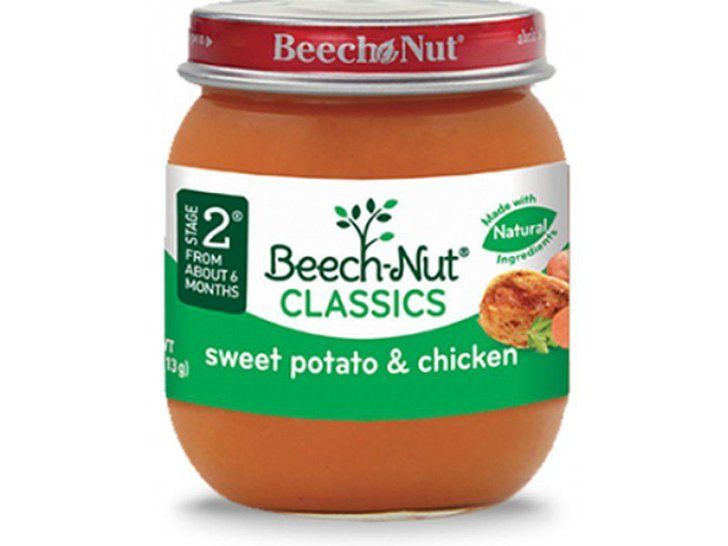 The limit should protect infants from both cancer and neurological harm.
The limit should protect infants from both cancer and neurological harm. - Parents who include infant rice cereal in their baby’s diet can immediately lower their child’s arsenic exposures simply by switching to oatmeal, multi-grain, and other non-rice cereals.
Image
Arsenic in baby rice cereal higher than FDA recommendation, advocacy group finds.
Learn more
Image
Infant rice cereal has worrying levels of arsenic, new study shows.
Learn more
Image
Should you be worried about the arsenic in your baby food?
Learn more
Image
Babies eat infant cereal at a time in life when the brain is intensely sensitive to harm, making arsenic in infant rice cereal uniquely risky. But cereal companies can fix this problem.
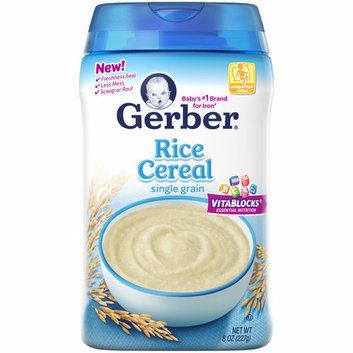 We are calling on manufacturers to reduce arsenic levels in their rice cereals to the same low levels we found in other cereals.
We are calling on manufacturers to reduce arsenic levels in their rice cereals to the same low levels we found in other cereals.—Jane Houlihan, study author and HBBF’s National Director of Science and Health
Frequently Asked Questions
Infant rice cereal has six times more arsenic than other types of infant cereal, and is babies’ top source of arsenic exposure. If you’ve been giving your baby infant rice cereal, make changes today. Risks from arsenic in infant rice cereal add up over time, so starting with other foods now will make a difference.
Other types of infant cereal have much less arsenic. Healthy choices for babies include cereals made from oatmeal, barley, wheat, quinoa, and other non-rice grains. Multi-grain cereals (even those that contain rice) are also good, low-arsenic options.
There’s enough arsenic in infant rice cereal that experts are now advising parents to choose other foods for babies’ first solids.
The American Academy of Pediatrics (AAP) advises parents to offer infant cereal grains like oatmeal, barley and multigrain.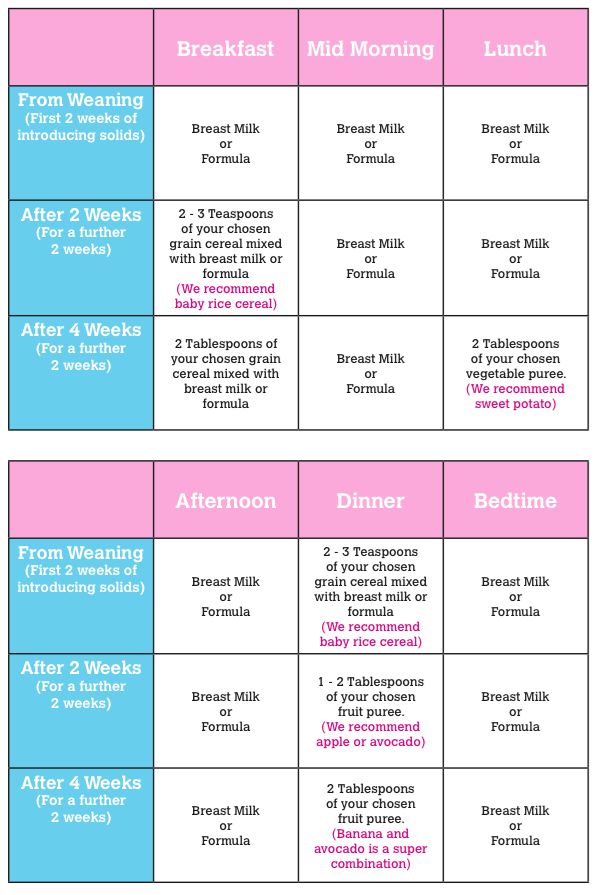 Introducing babies to a variety of grains gives them a variety of nutrients, too. AAP experts say that rice cereal does not have to be the first cereal or first food given to infants - other first foods can include pureed vegetables and meats.
Introducing babies to a variety of grains gives them a variety of nutrients, too. AAP experts say that rice cereal does not have to be the first cereal or first food given to infants - other first foods can include pureed vegetables and meats.
Feeding your baby rice cereal once in a while isn’t the problem. The risks become significant when babies eat rice cereal often, multiple times a week, for example.
But no amount of arsenic is perfectly safe. HBBF recommends non-rice and multi-grain cereals instead of rice cereal because they have reliably lower arsenic levels – six times lower than rice cereal, on average. They are a better choice, to help keep your baby’s arsenic exposures as low as possible.
Some babies need their food to be thicker in order to swallow safely or reduce reflux. Parents have traditionally added rice cereal as a thickener for bottle-fed infants. But because of concerns about arsenic in rice cereal, oatmeal cereal is now the preferred option. Learn more at the American Academy of Pediatrics’ Healthy Children website.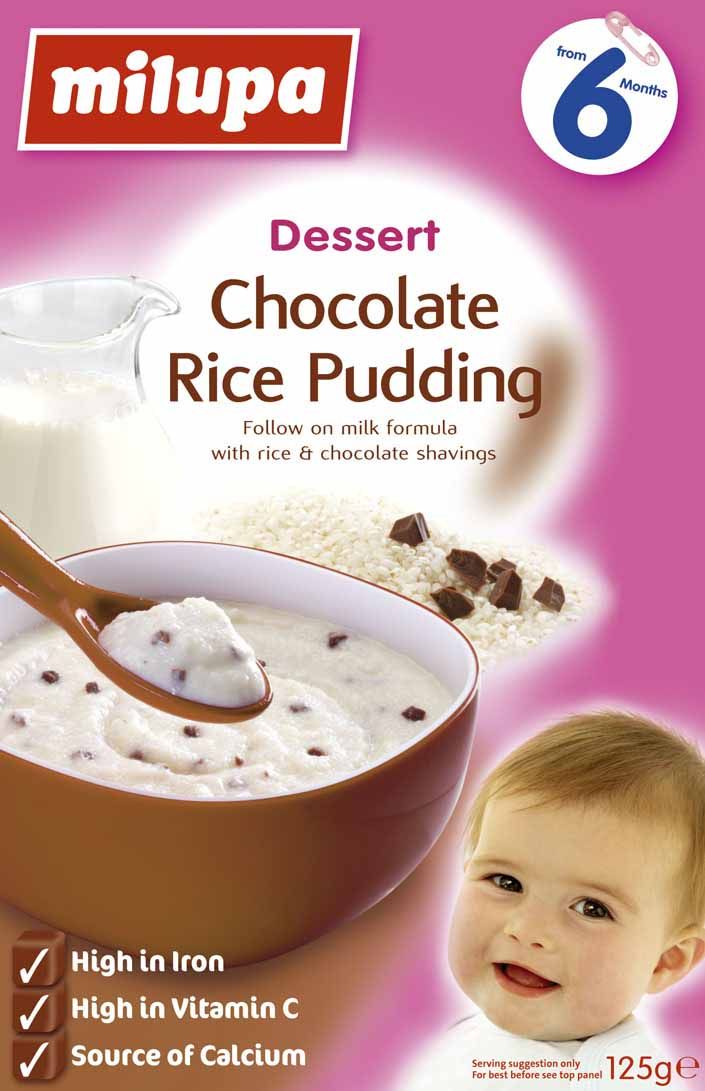
For many foods, organic and natural varieties are the healthiest choices. When it comes to arsenic in rice cereal, though, these alternatives don’t help.
In fact, our tests found 30 percent more arsenic in brown rice infant cereal than in other infant rice cereals. There’s more because arsenic concentrates in the outer part of the rice grain, the part that is removed in white rice but remains in brown rice. We also did not find reliably lower arsenic levels in organic rice cereals compared to other rice cereals.
Arsenic is a common pollutant in soil and groundwater worldwide. As a result, many foods are contaminated with arsenic. But rice accumulates about 10 times more arsenic from the environment than other grains. Infant rice cereal is babies’ top source of exposure.
Even though rice cereal is the top problem, tests also show high arsenic levels in apple juice, rice milk, rice cakes, puffed rice cereals and snacks, and other foods including some infant formulas that are sweetened with brown rice syrup (look for “brown rice syrup” on the ingredient list).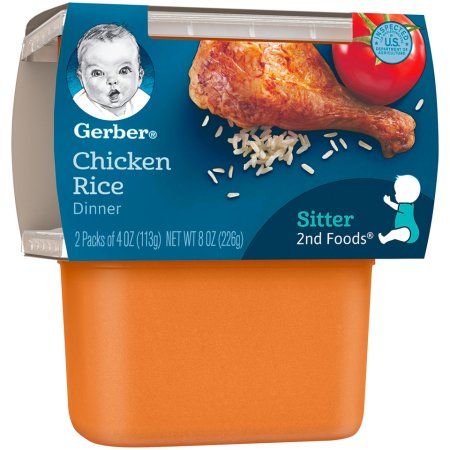 Gluten-free foods that contain rice flour instead of wheat flour can also have high arsenic levels.
Gluten-free foods that contain rice flour instead of wheat flour can also have high arsenic levels.
Solutions? Serve whole or pureed fruit instead of fruit juice (arsenic is concentrated in the juice). Choose gluten-free foods that don’t list rice as an ingredient. Ask your pediatrician about options other than rice milk, if your child needs a substitute for cow’s milk.
Learn more about healthy substitutes for high-arsenic foods on our tip sheet “8 Simple Ways to Protect Your Family from Arsenic Contamination in Rice and Other Foods.” English PDF • Spanish PDF
Arsenic causes cancer and harms children’s ability to learn. Children face the highest risks, because their bodies are still developing and their exposures are higher than adults’, pound for pound. But arsenic isn’t safe for anyone in your family. If you eat rice often, risks are higher and accumulates over a lifetime.
Fortunately, there are simple things you can do to reduce the arsenic in your family’s diet.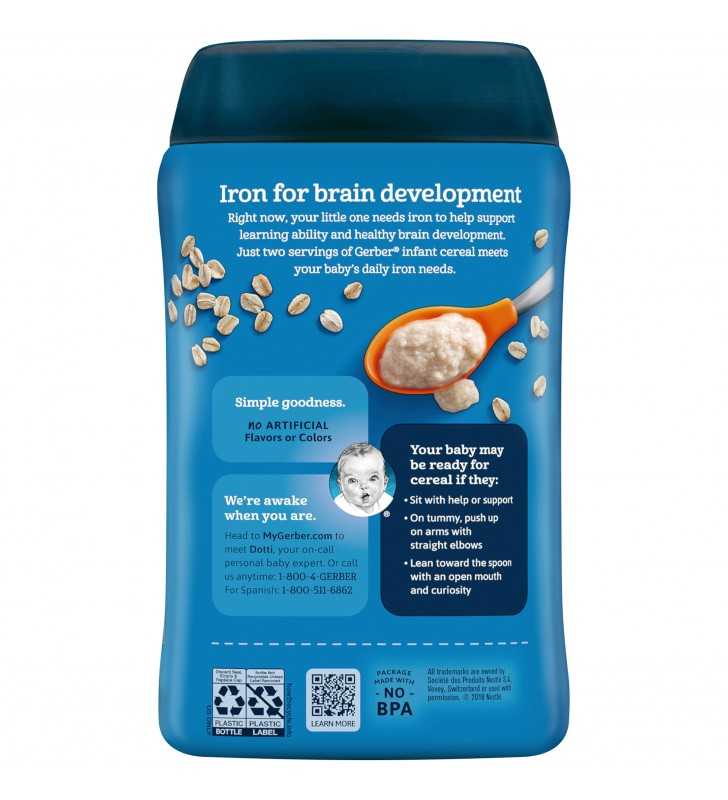 Cook rice in extra water that you pour off before eating. Buy basmati rice grown in California, India, and Pakistan for the lowest levels. And serve other grains like quinoa and farro to help reduce the amount of rice you eat.
Cook rice in extra water that you pour off before eating. Buy basmati rice grown in California, India, and Pakistan for the lowest levels. And serve other grains like quinoa and farro to help reduce the amount of rice you eat.
Since 2012 a number of studies of arsenic in infant foods have made the news, including Consumer Reports’ tests in 2012 and 2014. Our study focuses on the top arsenic source for infants (rice cereal) and fills two data gaps. We wanted to know if new non-rice infant cereals are low in arsenic and therefore healthy choices for babies (yes, they are). We also wanted to know if baby cereal companies had done anything in the past few years to reduce arsenic levels in their rice cereals (yes, it appears that they have, but not enough).
The problem of arsenic in baby food won’t go away soon. There will be even more studies published. When you learn about new research, be sure that the researchers have tested for “inorganic arsenic,” the more toxic form of arsenic, and that the test results are publicly available.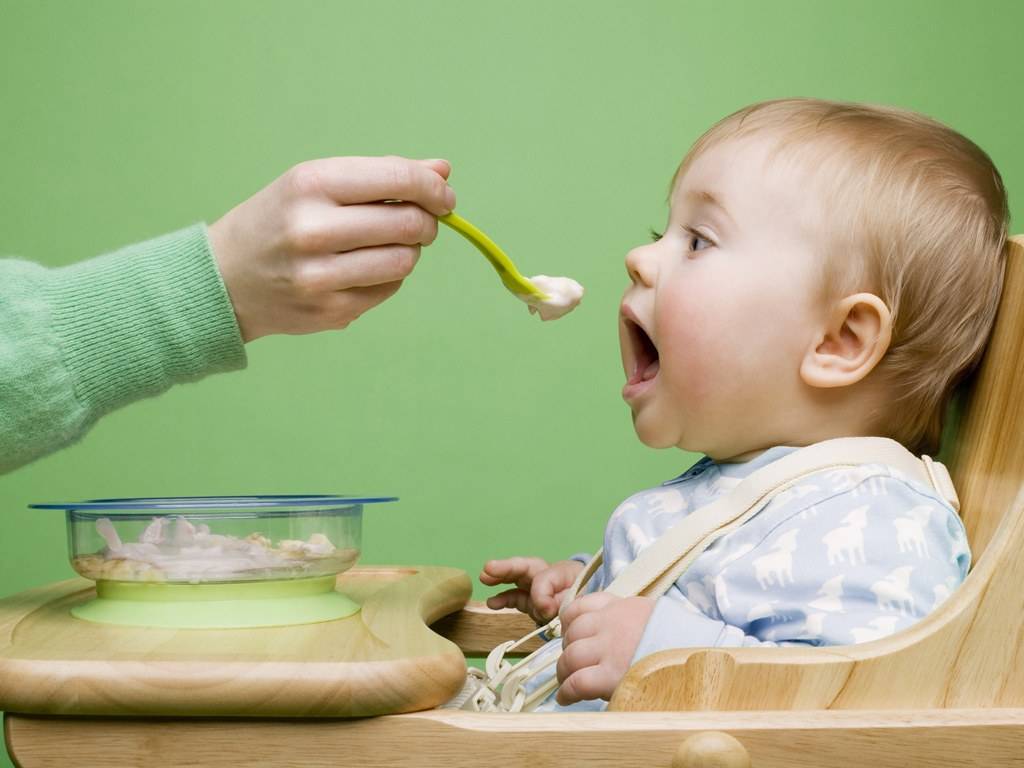 That will help you spot information that is most relevant to your family’s health.
That will help you spot information that is most relevant to your family’s health.
You can help get arsenic out of infant cereal. We’re asking Gerber to continue its leadership in reducing arsenic levels in its infant cereals. You can take action here.
Maple Island Inc. Issues a Voluntary Recall of Three Lots of Parent’s Choice Rice Baby Cereal
COMPANY ANNOUNCEMENT
When a company announces a recall, market withdrawal, or safety alert, the FDA posts the company's announcement as a public service. FDA does not endorse either the product or the company.
Read AnnouncementView Product Photos
Summary
- Company Announcement Date:
- FDA Publish Date:
- Product Type:
- Food & Beverages
- Reason for Announcement:
-
Recall Reason Description
Tested above the guidance for naturally occurring inorganic arsenic.
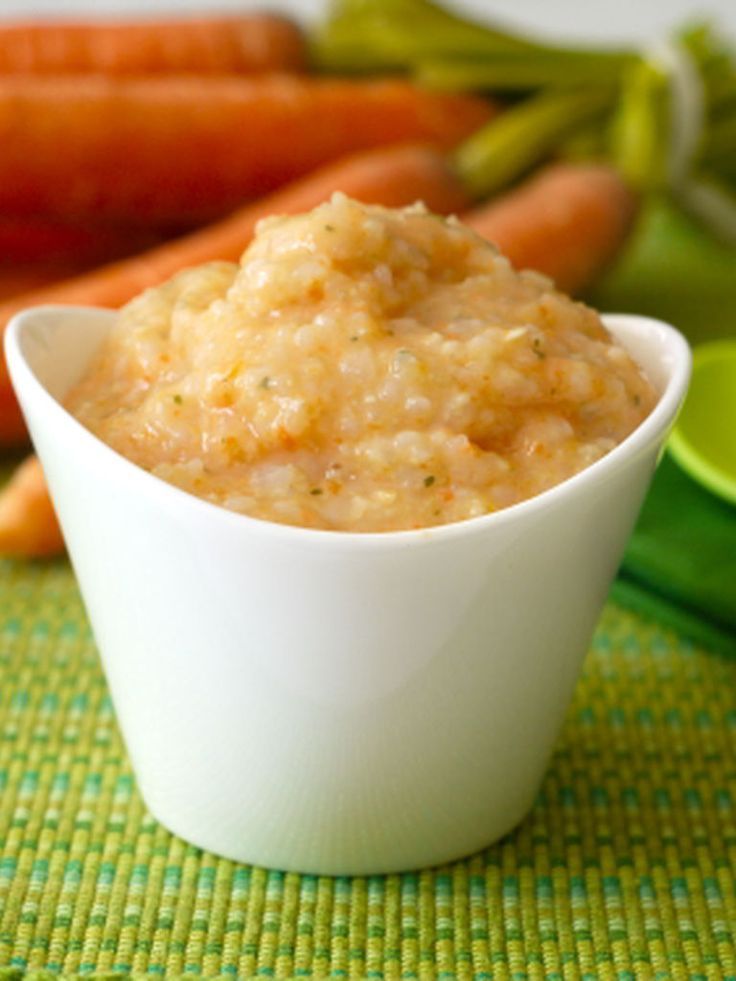
- Company Name:
- Maple Island Inc.
- Brand Name:
-
Brand Name(s)
Parent’s Choice
- Product Description:
-
Product Description
Rice Baby Cereal
Company Announcement
Maple Island Inc. has issued a voluntary recall of three lots of its Parent’s Choice Rice Baby Cereal that it manufactures for Walmart. This recall is a result of a routine sampling program by the FDA which found that a sample from three production lots of Parent’s Choice Rice Baby Cereal tested above the guidance for naturally occurring inorganic arsenic.
Maple Island Inc. is voluntarily recalling this product with the knowledge of the FDA, This product was distributed nationally through Walmart’s stores and online. Walmart was advised and has pulled the product from its store shelves and put a register block on the product at its stores and online to prevent any further sales.
The specific Parent’s Choice Rice Baby Cereal 8 oz lots being recalled were sold after April 5, 2021, and include:
- Lot 21083 with UPC Code #00681131082907 with a best if used by date of JUN 24 2022.
- Lot 21084 with UPC Code #00681131082907 with a best if used by date of JUN 25 2022
- Lot 21242 with UPC Code #00681131082907 with a best if used by date of NOV 30 2022
The best if used by date and product numbers can be found in the bottom left corner on the back of the Parent’s Choice Rice Baby Cereal packaging.
Customers who may have purchased Parent’s Choice Rice Baby Cereal at Walmart with Lot Number 21083/UPC Code #00681131082907 and best if used by date of JUN 24 2022, Lot Number 21084/UPC Code #00681131082907 and best if used by date of JUN 25 2022, or Lot 21242 with UPC Code #00681131082907 with a best if used by date of NOV 30 2022 should discard the product or return it to Walmart for a full refund. Customers seeking additional information may call Maple Island Inc.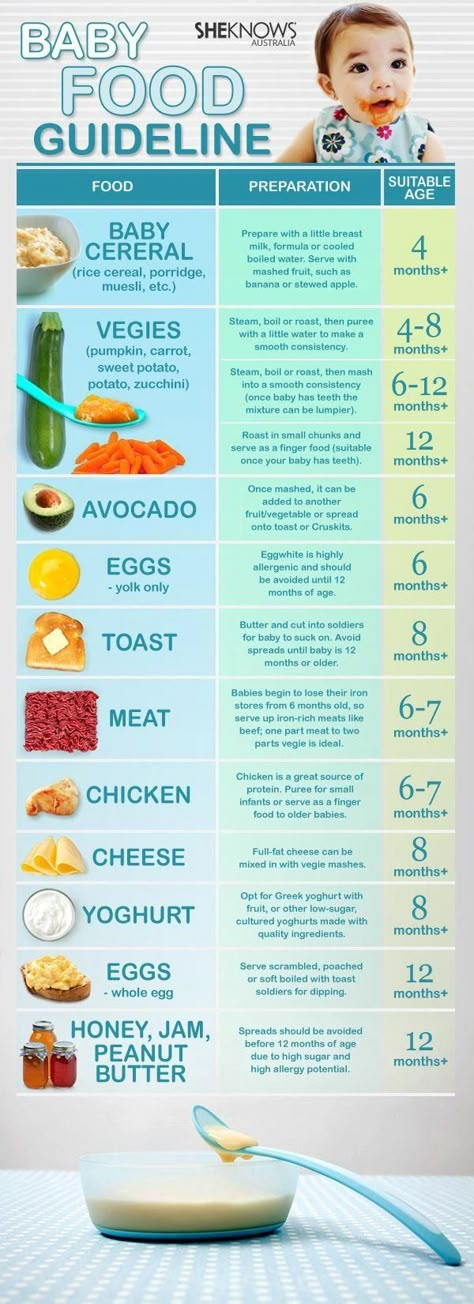 , Monday through Friday 8am – 4pm Central time at 1-800-369-1022 or contact the company by email at [email protected].
, Monday through Friday 8am – 4pm Central time at 1-800-369-1022 or contact the company by email at [email protected].
No illnesses related to the product lots have been reported to date and no other production lots or Parent’s Choice products are affected by this recall.
Maple Island Inc. conducted testing on both the raw material and finished product in question. While the test results were in compliance with the FDA’s guidelines, Maple Island Inc. is issuing this recall out of an abundance of caution. FDA has recognized that trace elements such as these are widely present in the environment, including water, soil and food. The FDA also noted that research has shown reducing exposure to toxic elements is important to minimizing any potential long-term effects on the developing brains of infants and children.
Please see the product images below:
Company Contact Information
- Consumers:
- Maple Island Inc.
- 1-800-369-1022
- info@maple-island.
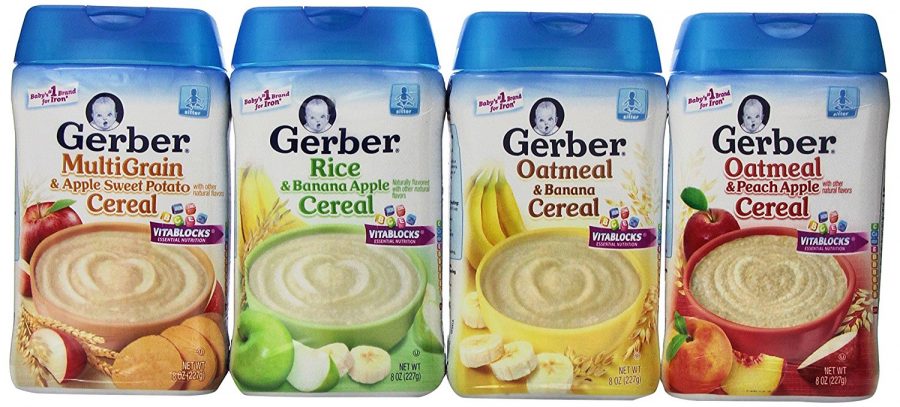 com
com
Product Photos
More Recalls, Market
Withdrawals, &
Safety Alerts
Reviews Gerber, DHA & Probiotic, Rice, Supported Sitting, 8 oz. (227g)
- Iron - Supports Support - Learning Ability
- Single Grain Cereal
- Non-GMO - No Genetically Modified Ingredients
- Every Bite Matters!
- BPA Free
DHA and Iron for Brain Development
Right now, your baby needs iron for proper brain development. And DHA contributes to the development of the brain and eyes. Just two servings of Gerber Baby Cereal Covers 90% of your child's daily iron requirement and also contains 36 mg of DHA.
Just great.
- Probiotics
- Gluten-free
- Non-GMO
Your child is most likely to eat porridge if they can:
- 9003 sit with a support;
- lying on the stomach do push-ups until the arms are fully extended
- Curiously reaches for the spoon, opening his mouth
Bifidus BL contributes to normal digestion in your child when consumed regularly.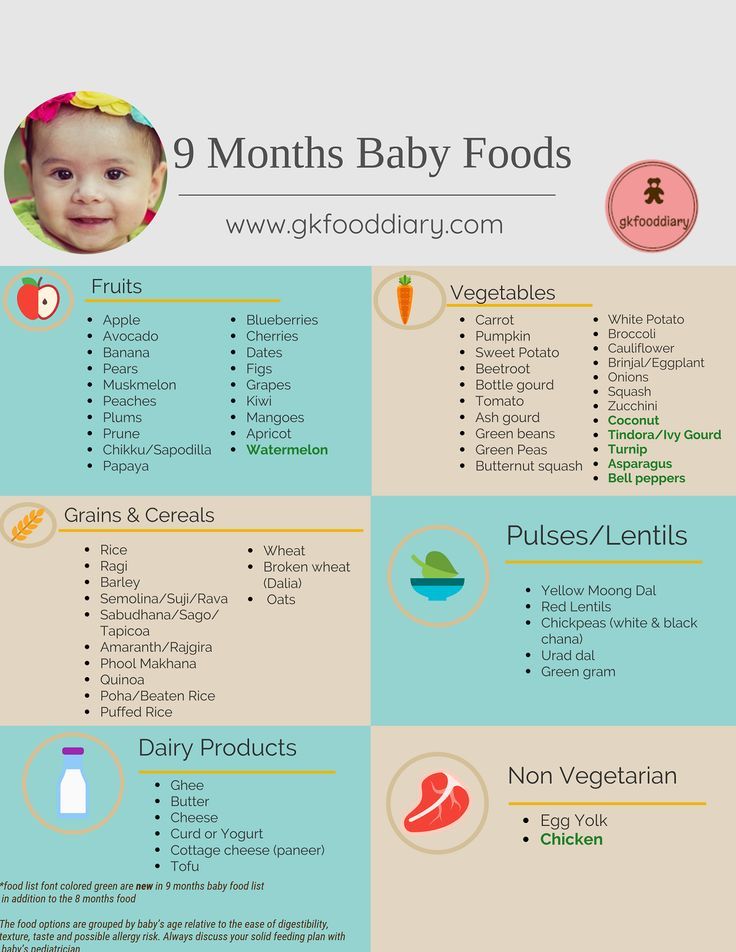
Does not contain genetically modified ingredients.
| Additional facts | ||
| Size of the portion: 1/4 cup (15 g) | ||
| Portations in the container about 15 | ||
| Calories | 60 | |
| A total of fat | 0. 5 g 5 g | |
| Trans-fat | 0 g | |
| 12 g | ||
| Dietary fiber | 0 g | |
| SUGARS | 1 g | |
| Protein | 1 g | 25% | 15% |
| Phosphorus | 4% | 2% | zinc | 20% | 10% |

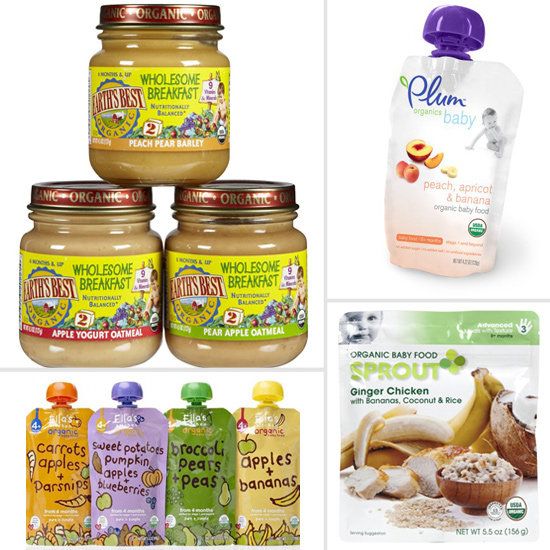 This cereal has earned the trust of nutritionists, pediatricians and parents around the world. Rice is a gluten-free, low-allergenic cereal with a high content of "healthy" carbohydrates (up to 85%), which are perfectly digested in the baby's sensitive digestive tract. Rice is also traditionally used in the therapeutic diets of people with diseases of the gastrointestinal tract, obesity, diabetes, metabolic syndrome and intestinal infections.
This cereal has earned the trust of nutritionists, pediatricians and parents around the world. Rice is a gluten-free, low-allergenic cereal with a high content of "healthy" carbohydrates (up to 85%), which are perfectly digested in the baby's sensitive digestive tract. Rice is also traditionally used in the therapeutic diets of people with diseases of the gastrointestinal tract, obesity, diabetes, metabolic syndrome and intestinal infections. 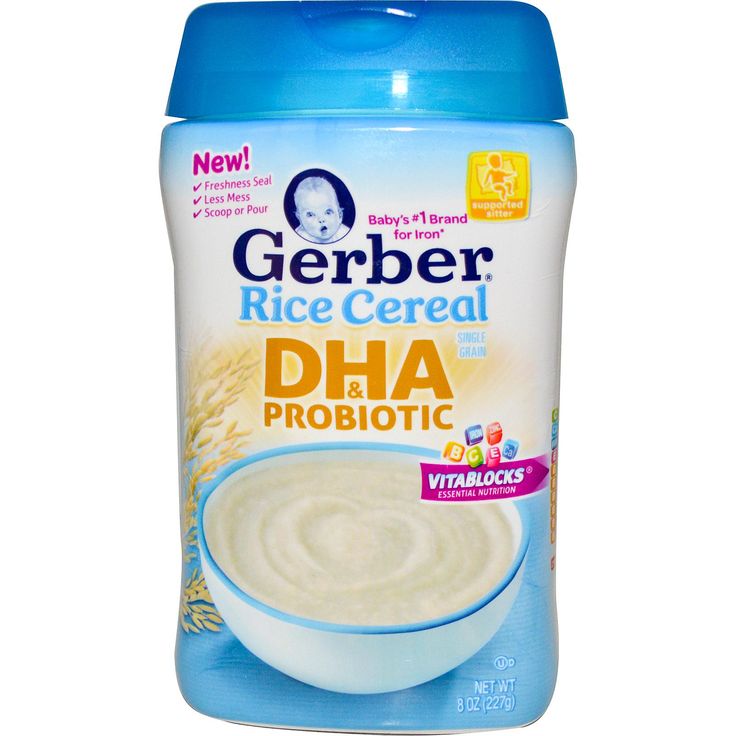 The low fat content in rice groats (0.7–1 g/100 g of groats), the optimal ratio of proteins, fats and carbohydrates (7 g/1 g/74 g) create a long-lasting feeling of fullness when eating ready-made rice dishes. Since rice does not contain coarse dietary fiber, it can be used in the diet of people with diseases of the digestive system, accompanied by excessive motility and gas formation. The vitamin and mineral composition of rice cereal is not as rich as compared to buckwheat or oatmeal. However, rice grains contain a large amount of B vitamins, of which the most are pyridoxine (vitamin B6) and tocopherol (vitamin E).
The low fat content in rice groats (0.7–1 g/100 g of groats), the optimal ratio of proteins, fats and carbohydrates (7 g/1 g/74 g) create a long-lasting feeling of fullness when eating ready-made rice dishes. Since rice does not contain coarse dietary fiber, it can be used in the diet of people with diseases of the digestive system, accompanied by excessive motility and gas formation. The vitamin and mineral composition of rice cereal is not as rich as compared to buckwheat or oatmeal. However, rice grains contain a large amount of B vitamins, of which the most are pyridoxine (vitamin B6) and tocopherol (vitamin E). 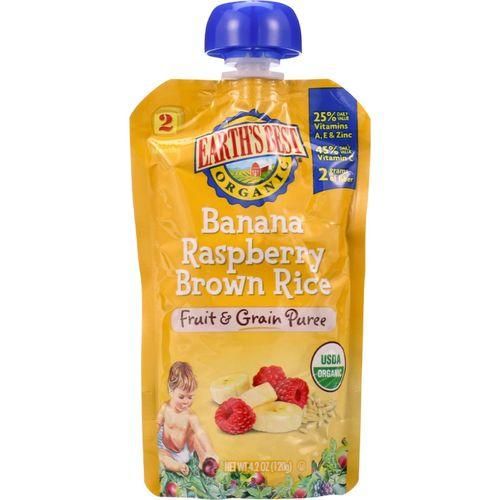 Therefore, the choice of parents in favor of porridge as the main dish in the morning is quite justified.
Therefore, the choice of parents in favor of porridge as the main dish in the morning is quite justified. 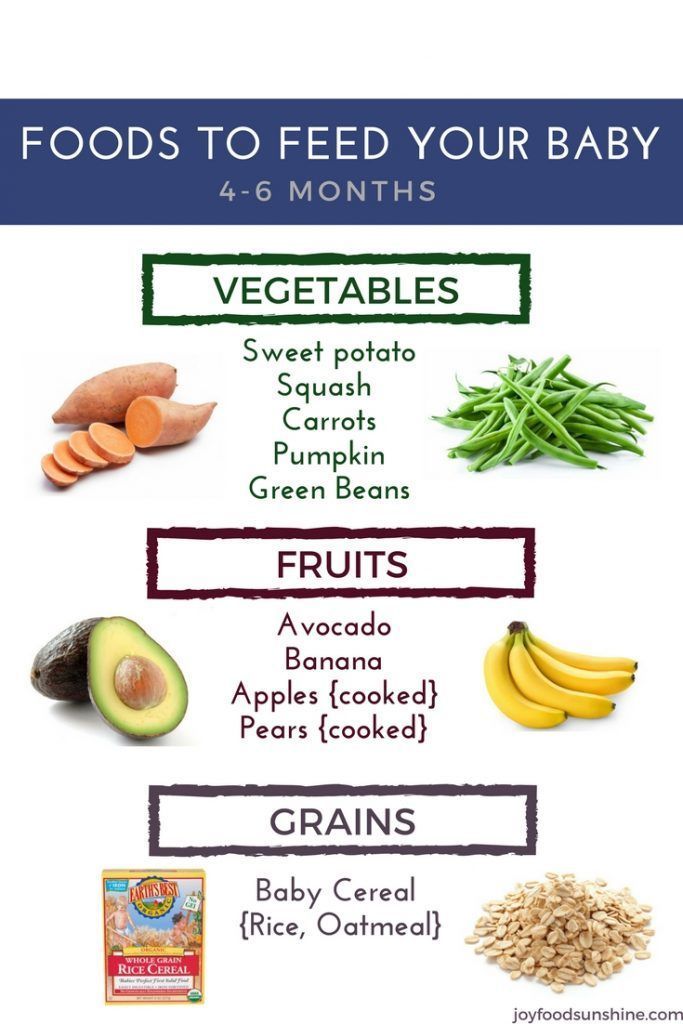

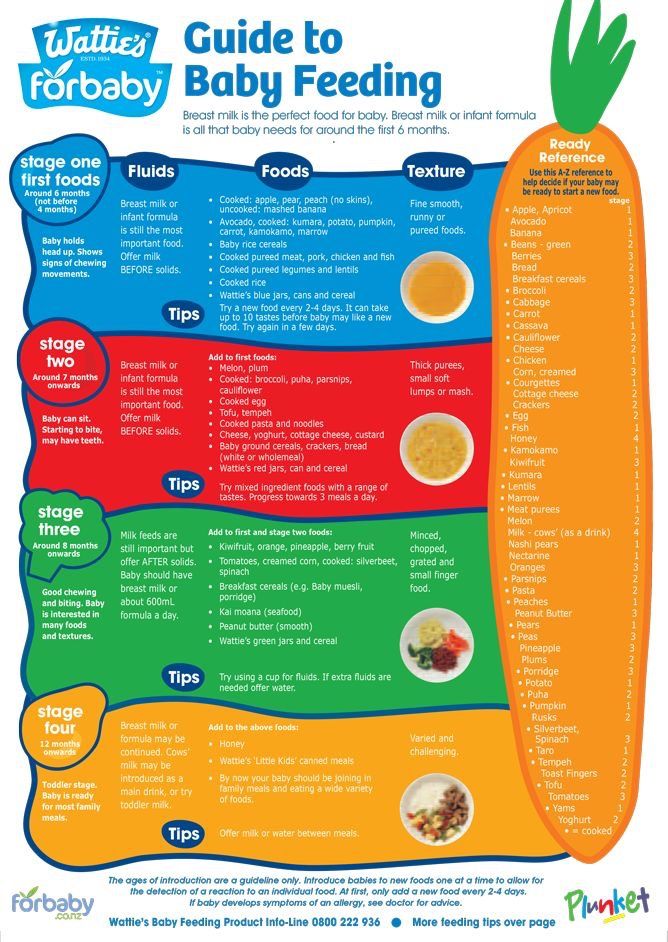 Fruit additives in cereals are additional sources of dietary fiber, vitamins, minerals, and also develop the taste buds of a little gourmet.
Fruit additives in cereals are additional sources of dietary fiber, vitamins, minerals, and also develop the taste buds of a little gourmet. 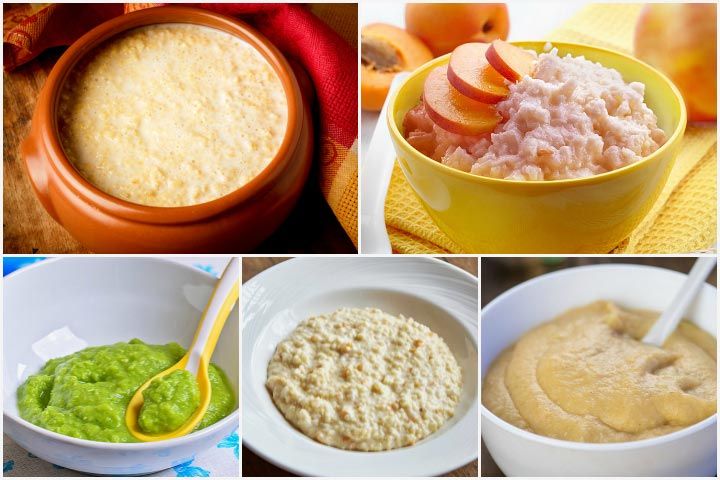 Start introducing a new food into your diet with a tiny amount. For the first acquaintance with rice, a quarter of a teaspoon of porridge will be enough for a crumb. Every day, you can increase the serving, gradually trying to reach the amount of one serving recommended by the pediatrician.
Start introducing a new food into your diet with a tiny amount. For the first acquaintance with rice, a quarter of a teaspoon of porridge will be enough for a crumb. Every day, you can increase the serving, gradually trying to reach the amount of one serving recommended by the pediatrician. 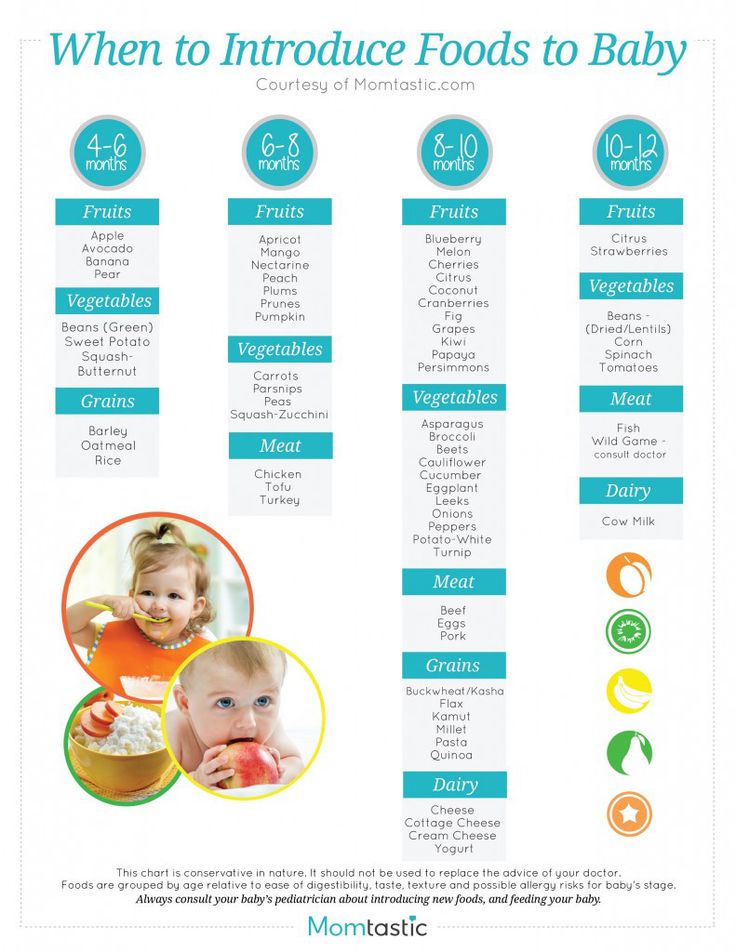 Take the time to teach your child about food etiquette from an early age. Wash your hands before and after eating. If the baby is already more than 10 months old, let him try to feed himself. To do this, put a beautiful bowl in front of him and offer a spoon that will be comfortable for him to hold.
Take the time to teach your child about food etiquette from an early age. Wash your hands before and after eating. If the baby is already more than 10 months old, let him try to feed himself. To do this, put a beautiful bowl in front of him and offer a spoon that will be comfortable for him to hold. 